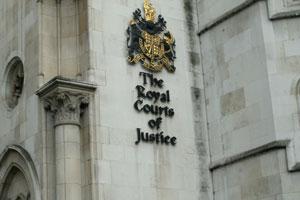On the first day of the hearing in London, the QC for Andre Serruys, the former owner of metal recycling firm Easco, denied accusations that the business sold by Mr Serruys for more than £90 million was shot through with “endemic” fraud, kick backs and “black money” scams.

SITA UK Group Holdings Ltd claims that no “honest buyer” would have paid a penny for Easco had they known the truth.
SITA's counsel, Anthony Temple QC, claimed Easco was “replete with dishonest practices and built on a dishonest business model” and was effectively worthless.
Listing some of the scams which he claimed ran through Easco's business, the barrister said there was widespread “skimming” – in which quantities of metal received from suppliers were under-declared.
“Black money” payments, he alleged, were made to staff and suppliers which were not accounted for in the books, or for tax, and consignments of metal were “adulterated” with worthless material to increase the price.
Representations made and “warranties” given before SITA parted with the £91.5 million were deceitful and in no way represented Easco's true position, Mr Temple claimed.
Sucess
However, Adrian Beltrami QC, for Mr Serruys and SPC, says the businessman built up Easco from scratch into one of the largest scrap metal recycling companies in the country and denies absolutely that its success was based on dishonesty, or the sale process “a sham”.
Insisting that SITA's “unrestrained” and “extravagant” accusations “ought never to have been made”, the barrister denies that there was “widespread and endemic fraud within Easco” or that that was in any way “organised and encouraged” by Mr Serruys.
Allegations “of the gravest nature” against Mr Serruys are groundless and Mr Beltrami says SITA's case that Easco was “a thoroughly corrupt business” is built on a “catalogue of paradoxes” and “inherent improbability”.
Accusing SITA of “opportunism” and trying to get “a successful and thriving business” – Easco – for free, Mr Beltrami says the company was sold after an “open auction process” and it “was worth the price that SITA paid for it”.
The barrister accepts that “certain small sums” in cash were paid to Easco employees, without going through the payroll, but Mr Serruys had “limited knowledge of the detail of these” and the amounts involved were “very minor in the context of the acquisition”.
He also agrees that “some payments in cash” were made to factory suppliers, but insists that these were “common practice in the industry” and were not “in any sense dishonest”.
A proportion of payments from one customer had, “for a period of time”, been transferred directly either to an account in the name of Mr Serruys' wife, or to Easco in cash, and Mr Beltrami agrees that this “should not have been done”.
However, the sums involved were minimal “in the context of the acquisition” and any such transactions had stopped long before the sale to SITA, says the barrister.
The High Court hearing, before Mr Justice Davis, continues and is expected to last at least until Christmas.









Subscribe for free